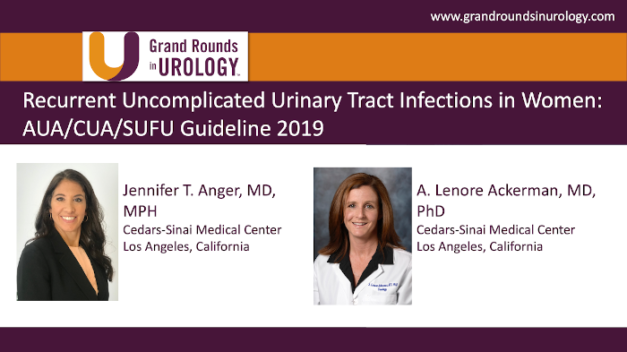Point-Counterpoint: PCR and NGS is the New Standard for Clinical Evaluation, not Culture and Sensitivity – Pro
Jennifer T. Anger, MD, MPH, makes the case that polymerase chain reaction (PCR) and next-generation sequencing (NGS) is the new standard for clinical evaluation of urinary tract infections (UTIs) in this Point-Counterpoint lecture. Dr. Anger explains that UTIs are caused by a dysbiosis of normal flora and asserts that culture doesn’t provide a complete picture and doesn’t help symptomatic patients on antibiotics who are culture-negative; she asserts NGS fills in the diagnostic gaps.
Dr. Anger addresses the utility of NGS in catheter-associated UTIS (CAUTIs), which make up ~80 percent of all UTIs. Dr. Anger presents data from a head-to-head comparative phase II study of standard urine culture and sensitivity versus DNA NGS testing for UTIs that showed 30 percent of DNA-positive samples were culture-positive; additionally, patients who were culture-negative and NGS-positive had improved outcomes when treatment was initiated based on NGS results. She addresses cost before turning to NGS studies at UCSD on interstitial cystitis (IC), fertility, stricture disease, and inflatable penile prosthesis (IPP) infections and using NGS to tailor antibiotics.
Dr. Anger concludes with four points: NGS offers a comprehensive scope of the urinary tract microbiome; has superior diagnostic ability compared with culture; informs improved tailoring of antibiotics; and has the potential to provide insights for certain conditions including stone disease, infertility, and IC.
This lecture is part of a Point-Counterpoint debate. Its opposing lecture is “Point-Counterpoint: PCR and NGS is the New Standard for Clinical Evaluation, not Culture and Sensitivity – Con.”
Read More



